Anti Persons Trafficking
VANGUARD FORUM : Discussions to eliminate trafficking of humans in Tanzania
Summary of the conversation which took place on August 16, 2017
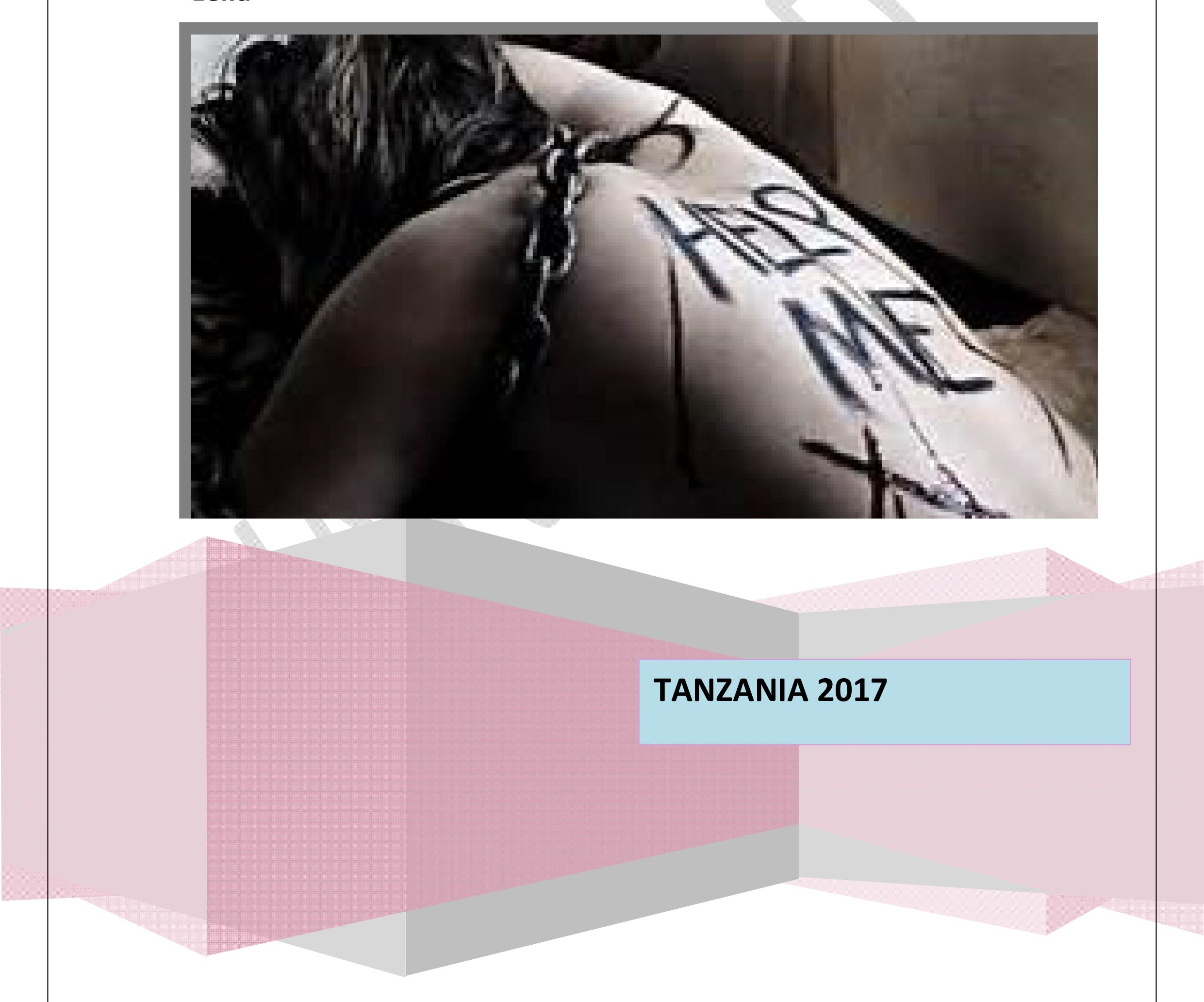
1. How do we as a nation intervene and eliminate human trafficking?
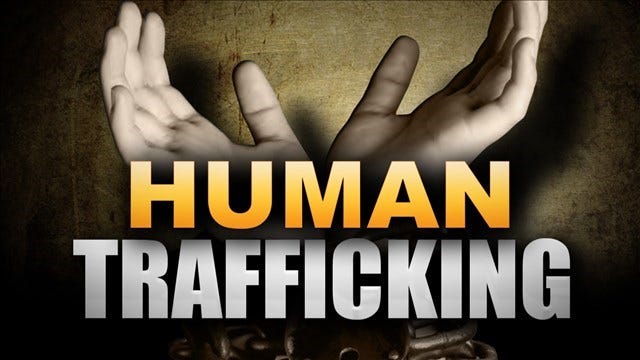
HUMAN trafficking and sexual exploitation is the acquisition and exploitation of people, through means such as force; fraud; or deception. The practice ensnares millions of women and girls into modern day slavery, many of whom are sexually exploited.
The UN has noted that of the 21 million people in forced labor globally, 4.5 million are victims of sexual exploitation. Out of these, 98% are women and girls.
PREAMBLE – to the Anti Persons Trafficking Act 2008,Tanzania
WHEREAS the United Republic values dignity of every human person and guarantees respect of individual rights;AND WHEREAS the United Republic recognizes equal rights and inherent human dignity of people as enshrined in the Constitution of the United Republic of Tanzania of 1977; and in the United Nations Convention Against Transnational Organized Crime together with the Protocol to Prevent, Suppress and Punish Trafficking in Persons, and children and other universally accepted human rights instruments and international conventions to which the United Republic is signatory.AND WHEREAS the United Republic accords highest priority to the enactment of measures and development of program that promotes human dignity, protects the people from any threat of violence and exploitation, eliminates trafficking in persons and mitigates pressures for involuntary migration and service of persons with a view to ensuring their recovery, rehabilitation and re-integration into the mainstream of the society;AND WHEREAS the United Republic is convinced that despite the existence of a variety of international instruments containing rules and practical measures to combat exploitation of persons, there is a need to put in place a comprehensive legislation to address all aspects of
trafficking in persons…….
The UN Protocol
Human trafficking is defined in international law in the United Nations Protocol to Prevent, Suppress and Punish Trafficking in Persons, especially Women and Children (Palermo Protocol). This Protocol supplements the United Nations Convention against Transnational Organized Crime (TOC), 2000. Article 3 of the Protocol defines trafficking as:
“Trafficking in persons shall mean recruitment, transportation, transfer, harboring or receipt of persons, by means of threat or use of force or other forms of coercion, of abduction, of fraud, of deception, of abuse of power or of a position of vulnerability or of the giving or receiving of payments or benefits to achieve the consent of a person having control over another person, for the purpose of exploitation”.
Exploitation shall include, at a minimum, the exploitation of the prostitution of others or other forms of sexual exploitation, forced labor or services, slavery or practices similar to slavery, servitude or the removal of organs”.
2.How widespread is human trafficking in Tanzania?
Anecdotal evidence as well as formal research seems to show that trafficking in women and girls is increasing in Tanzania, and thus we should no longer hide our heads in the sand and pretend this heinous crime is not taking place.
Current interventions among women and girls who engage in the sex trade, target mostly the HIV/AIDS agenda. There are no interventions in existence that promote and protect the rights of women and girls who are being trafficked and sold into sexual slavery.
In fact the over arching attitude in Tanzania is that such people have no rights to speak of because in most peoples’ minds, since such women and girls are invisible, they should remain there, in the shadows, outside the protection of society and law enforcers.
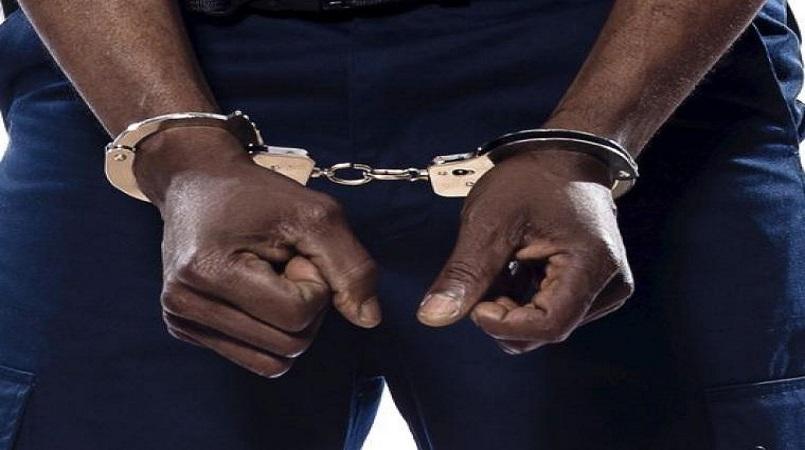
The few interventions that exist are for rescue and rehabilitation of women and girls who engage in sex work, and while this may be commendable, there is need to look beyond women and girls who claim they are in ‘own choice’ sex work, and address the issue of trafficking of women and girls in sexual slavery, who are trapped in a vicious circle which was started by pimps who ‘bought’ the women and girls, and then send them out to work in the sex trade.
Such women and girls are treated and perceived as beasts of burden and they find it almost impossible to break free and get away from their ‘owners’ who not only use threats; violence; and intimidation; to hold on to the women and girls, but they also use psychological indoctrination which has made the women and girls who are being trafficked, live in fear of leaving the space in which they are held prisoners. They have been so oppressed that they have become afraid of the outside world; believing they would not be able to survive as ‘free people’.
Tanzania is both a country of origin as well as of transit for trafficking in persons. Tanzanian women and children/girls are trafficked to other African countries and to the Middle East. There is also internal trafficking within Tanzania. Women and childrenboys and girls, are usually trafficked from rural communities to urban centers and are forced to work in the domestic; agricultural; fishing; and mining sectors. Tanzania is also a transit country for women from war torn countries to the Middle East where they are either put into domestic work servitude, or are put through sexual exploitation.
Various factors contribute to the crime of human trafficking throughout Tanzania. Among the most significant factors are poverty and the disintegration of the family unit. Poor families often do whatever they can to survive, even if it means ‘selling’ their daughters to human traffickers.
In addition, as part of traditional practice, low income parents often send their daughters to wealthier relatives to be taken care of, but cases have been reported whereby the relatives ‘sell’ the girls into sexual exploitation.
3.What is being done to intervene against human trafficking?
The few rescue and rehabilitation programs for sex workers are being operated and run by Faith Based Organizations (FBOs) and their approach is one which uses religious script and tenets to rehabilitate sex workers. The FBOs do not seem to work with law enforcement agencies, believing that ‘Love and Compassion’ would save the women and girls who engage in sex work.
This approach may work for some sex workers who embrace exits from sex work and find other sources of income generation, but the approach does not address women and girls who are held hostage by human traffickers.
What is needed is a united, concerted effort, by all stakeholders who would address the practice of women and girls trafficking as sexual slavery. The stakeholders ought to include government; law enforcers; Civil Society Organizations (CSOs) which are focused on Human Rights in their programming; owners of hotels and guest houses whose staff can be trained to spot women and girls who are being sold in sexual slavery; the media which can coordinate civic education to stop trafficking; legal based CSOs which can conduct outreach to communities to inform them on legislation pertaining to Anti Human Trafficking; Members of Parliament who have the duty to inform their constituents on trafficking; Local Government Authorities (LGAs) which have the duty to oversee law and order in their hamlets; parents who sell their daughters to human traffickers without understanding the implications of what human trafficking entails; and most of all, young women and girls need to be informed about predatory men and women who befriend them, then sell them to human traffickers.
The linkages between and among the different interventions is still limited and should be strengthened and improved. The various stakeholders need to find and maximize points which intersect; and areas which can complement the work being done so far, to scale up the national response to eliminate women and girls trafficking.

Sex work is currently criminalized in Tanzania. At the same time, there seems to be no consensus on which the better approach is, and what protects women and girls more- between decriminalizing own choice sex work while prosecuting women and girls trafficking offenders; or continuing with the current law, the Sexual Offences Special Provisions Act (SOSPA 1998) which has criminalized sex work through the clause “Living off the earnings of prostitution….”.
We should note here that SOSPA 1998 has exempted the buyer of sex services from prosecution, which comes across as a gross injustice. Since “living off the earnings of prostitution….” Is a criminal offence, then the buying of sex services should also be criminalized.
The clause in SOSPA 1998 on prostitution is most difficult to enforce because the punters, the buyers of sex services are not punished. The outcome of the flaw in not apprehending and prosecuting the buyer of sex services makes it difficult for law enforcers to establish that money did exchange hands between a sex worker and a sex buyer. It also impedes the drive by law enforcers to apprehend and prosecute women and girls traffickers who are sold into sexual slavery.
Such clarity can only come about as our society in Tanzania engenders an open and democratic environment in which to have this debate and dialogue honestly and in which so called ‘own choice’ sex workers; buyers of sex services; and bar and hotel and guest house owners; play a central and leading role in determining what should be done to address the scourge of women and girls trafficking. Short of this open discussion, sex workers of all ilk, the own choice sex workers; the women and girls who are being trafficked through brothels and pimps; will continue to subsist in an environment that does them a great deal of harm.
Our society needs to have conversations on women and girls trafficking and to come up with suggestions on strategies to stop the heinous crime. The first measure should be setting up structures to apprehend the buyers of sex services from women and girls who are being trafficked. Once the market for such services is closed, the trafficking in women and girls would reduce considerably.
We should ensure coherence in our legislation. It is counterproductive to have a legislation which punishes sex workers and women and girls who are being sold in sexual slavery, while protecting the buyers of the service.
Therefore, SOSPA 1998 needs revisiting and relevant clauses included for intervention and criminal prosecution of those who buy sex services.
Such incoherence in the legislation has the danger of driving up the levels of HIV/AIDS prevalence in Tanzania and driving women and girls who are being trafficked underground, while increasing the risks and human rights violations they already face.
Our society does not currently embrace nor see it as its responsibility to protect women and girls who are being trafficked in sexual slavery against violence and other human rights abuses. This is in direct contravention of the Constitution of Tanzania and other international and regional human rights instruments that Tanzania is signatory to. Our nation needs to be challenged to ensure it protects the rights of ALL its citizens.
4. Proposed Strategic Interventions
Legal and Policy Application: The time is ripe in Tanzania to support policy and legal application in order to better protect women and girls from traffickers. As a matter of urgency therefore, organizations involved in promoting and protecting the rights of women and girls from being trafficked should ensure that the legislation protects the trafficked women and girls, while punishing the traffickers; the clients/punters who pay for the sex service from women and girls who are being trafficked; the hotels and guest house owners and managers who allow such illegal activities to take place in their establishments; the parents/families of girls who sell their girl children into sexual slavery; and LGAs which are aware that trafficking is taking place, yet do not take any legal recourse.
Public Responsibility: Stakeholders, from local government authorities LGAs to faith leaders to teachers to legal based CSOs should support women and girls who cry out for help well as to apply the Penal Code for women and girls who are being trafficked. Although the law- the Anti Persons Trafficking Act 2008 is specific and has made provisions for the protection of all Tanzanians from trafficking, so far, the law has not been enforced in Tanzania with brothels where girls as young as 12 years of age are being trafficked in full glare of the public. The public does not see it as their responsibility to rescue the girls by reporting the crime to the police. The law has also made provisions for punishments to traffickers yet the majority of Tanzanians are not aware of the existence of the Anti Persons Trafficking Act 2008.
Normally, law enforcers tend to arrest and charge women and girls who engage in sex work, without taking into account the fact that they are victims and needing of rescue.
In the United States, girl child sex workers have been defined and are treated as sexually abused children. Also, victims of trafficking are not charged with criminal offence but are instead asked to assist law enforcers in apprehending human traffickers and to give testimony in law courts against the traffickers.
Additional to strategic litigation, legal and human rights organizations should be encouraged to bring cases of human trafficking to the Commission for Human Rights and Good Governance (CHRAGG), which would help show case whether institutions that are established to protect human rights in Tanzania are actually accessible to ALL Tanzanians citizens regardless of their station in life.
Documentation of Human Rights Violations Against women and girls Trafficking: There is need to support consistent documentation of the rights violations that such women and girls face. This can be done directly by building the capacity of women and girls who are being trafficked to do their own documenting or to do it in collaboration with organizations such as the TGNP which is already in the process of training and documenting human rights violations against women and girls. Such documentation would provide the information needed for policy and law reform and for prosecution of rights violations.
Apart from supporting documentation of rights violations against victims of trafficking, more action research is needed to build the body of knowledge about rights issues and concerns of trafficked women and girls since they are a diverse group, with some of them being Tanzanian, while others are foreigners, illegal immigrants who came to Tanzania to seek asylum, then found themselves in the clutches of human traffickers. Being illegal immigrants, without the necessary permits to stay in Tanzania, and not having a grasp on Kiswahili, such foreign women and girls are more prone to getting physically abused by their ‘owners’ as compared to Tanzanian victims of trafficking. Such documentation will help refine interventions to reduce and then eliminate human trafficking in Tanzania.
Working with Law Enforcement Officers: It is critical to train law enforcement officers in human rights especially as they relate to marginalized groups such as women and girls who are being trafficked into sexual slavery. Support can also go towards developing zero tolerance policies against violence. A fair and supportive system through which survivors of trafficking can report crimes against them should be established. Most major police stations in Dar es Salaam have a gender desk that is responsible for receiving and investigating complaints of a sexual and gender based nature. Such mechanisms can be improved upon to ensure that they respond to the rights violations of women and girl victims of trafficking who attempt to escape from the sexual slavery.
Economic Empowerment- Alternatives for women and girls who engage in sex work: While the efforts of rehabilitation organizations are appreciated in as far as they have endeavored to provide vocational training to women who engage in the sex trade, they need to diversify the vocational skills options and orient them towards those that are income generating and sustainable. This would entail working with sex workers, both who profess to be ‘own choice’, and those who have been rescued from trafficking; business enterprise groups; and even women’s entrepreneurs’ groups; to develop vocational skills models that work.
Additionally, collaboration should be built between women who engage in sex work and micro finance institutions to enable them develop packages that are oriented towards the nature of sex work with the ensuing physical and emotional wounds. The micro finance institutions can also be encouraged to provide exiting with basic financial literacy.
Legal Services for women and girls who are being trafficked: In research conducted by this writer in 5 regions in Tanzania, women and girls who engage in the sex trade repeatedly stated that they urgently need legal aid services as well as rights awareness. While there are a number of legal aid service providers in Tanzania, very few are aware of, or take on cases with sex workers as complainants. The legal aid CSOs should be encouraged to make their services available to women and girls who wish to press charges and have prosecuted the men and women who traffic them. Organizations doing paralegal training should be encouraged to develop and conduct a tailor made training of paralegals from among who have exited from sex work, but who are trying to give support to women and girls who have not yet exited from the sex trade. The organizations that conduct legal awareness and sensitization should ensure that they reach this constituency which seems to be growing at an alarming rate.
- Recognize sex trafficking and the commercial sexual exploitation of women and girls as human rights violations that require immediate government intervention;
- Enforce the anti-trafficking Act that incorporates comprehensive definitions of trafficking that broaden the protection of trafficking victims and prosecute those who exploit them, not the exploited;
- Implement the international instruments addressing human trafficking, including the United Nations Protocol to prevent, suppress and punish Trafficking in person, Especially women and children and protocol of women’s rights calling on governments to take, inter alia, appropriate measures to comprehensively address human trafficking;
- Recognize the commercial sexual exploitation of women and girls, including prostitution, as gender-based violence and discrimination against the women and girls who are being coerced by traffickers to engage in the sex trade, and therefore, governments must refrain from enacting laws and policies that punish, stigmatize or criminalize trafficked women and girls who are sold into sexual slavery, while abrogating existing laws and or policies which presently do so;
- Address the demand for prostitution, which is inextricably linked to sex trafficking, by prosecuting the traffickers and pimps, as well as enacting and implementing laws that criminalize the “customers” who buy sexually trafficked women and girls who are sold in the commercial sex trade;
- Enforce the Anti Persons Trafficking Act 2008 to protect women and girls trapped in the sex trade and provide support for grassroots and national organizations that are working to end their exploitation and provide them legal, medical and social services;
- Affirm organizations which provide or finance the provision of comprehensive medical; legal; psychological; housing; and other victim-centered social survives to women in conditions of commercial sexual exploitation trafficking in Tanzania.

5. The Anti Trafficking Committee
The Anti Trafficking Committee needs to be enabled with sufficient funding to be able to operate with efficacy. The following should be noted:
- Trafficking of humans is a billion dollar business globally with human traffickers having a wide network of allies and partners internationally, therefore, the Committee needs to be equipped with funds and equipment and a proper secretariat in order to have impact in the intervention against human trafficking.
- Trafficking in humans is often linked to other crimes like narcotics and money laundering. Intervention strategies need to be set up to include other crimes alongside human trafficking.
- Trafficking of humans has implications on HIV infections and Hepatitis C infection These often have a multiplier effect on communities, therefore, an HIV and Hepatitis C intervention Plan ought to be put in place while combating human trafficking.
- The dignity; the respect; the protection of women and girls should be among national prior
- The media can be a powerful ally in civic education on human trafficking.
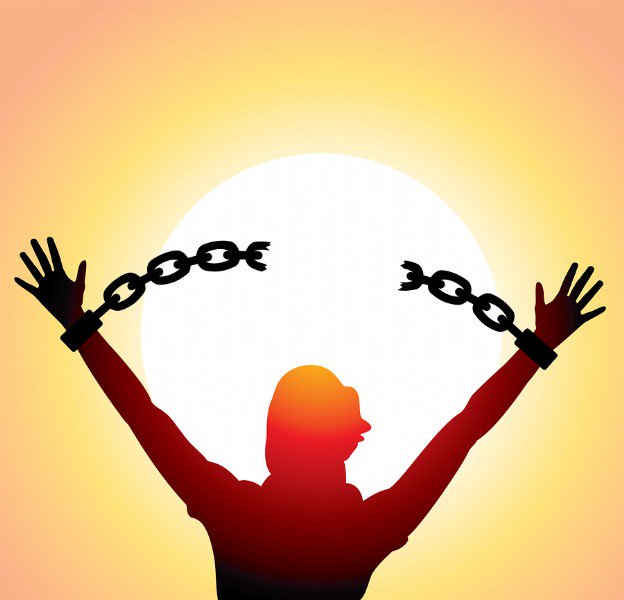
Everyone has the right to dignity; security; and protection!
“Together We Can Make it Happen”
Leila Sheikh
Senior Journalist
Activist for Gender Justice


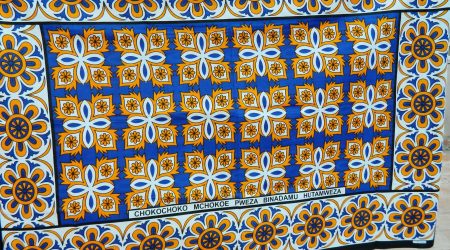


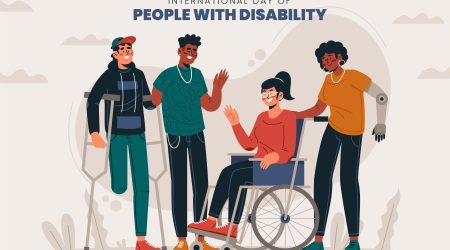
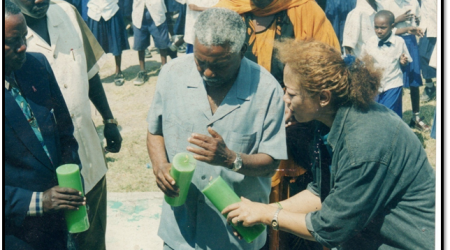
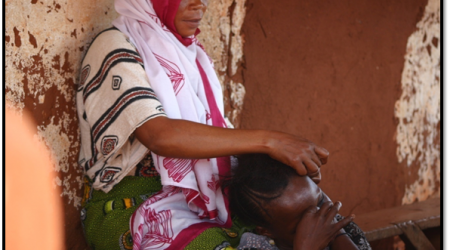
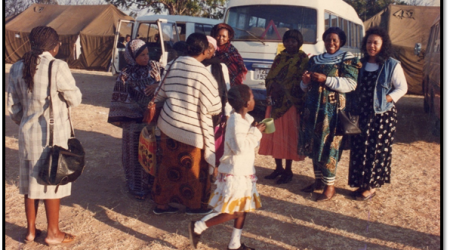




Leave a Reply